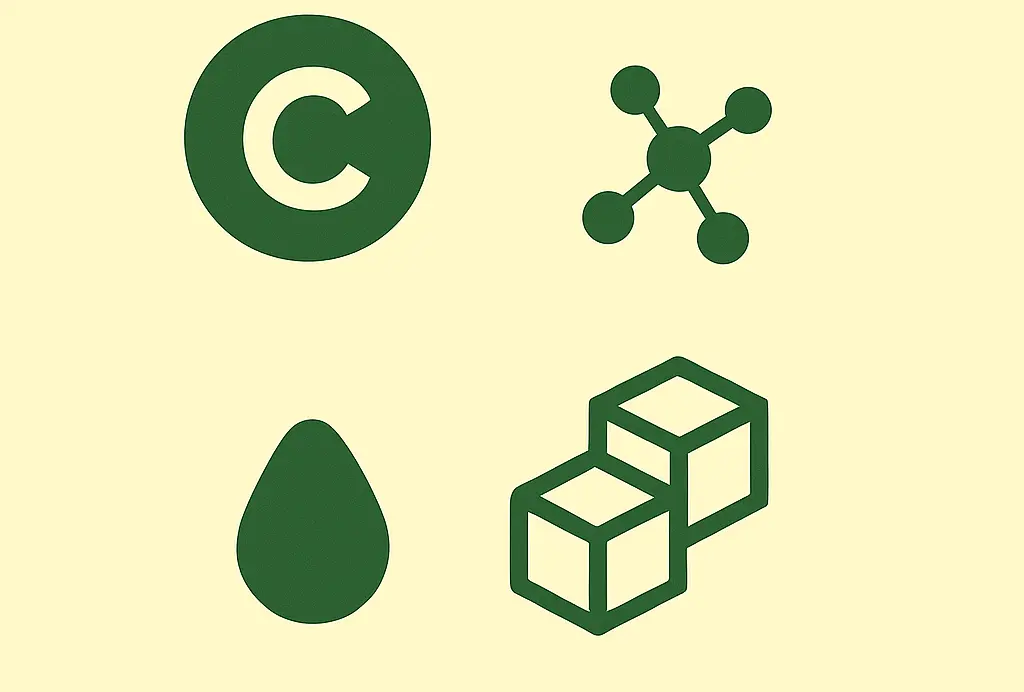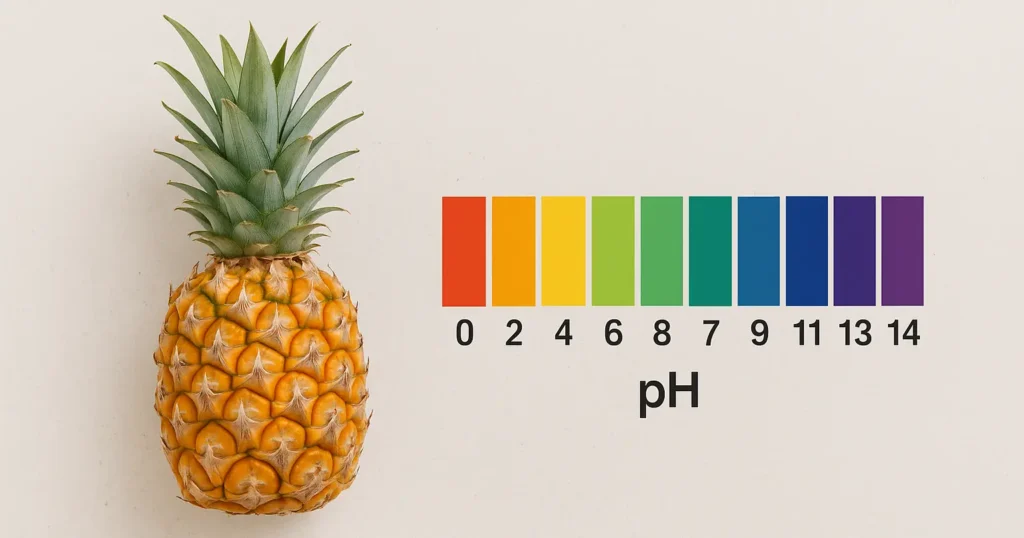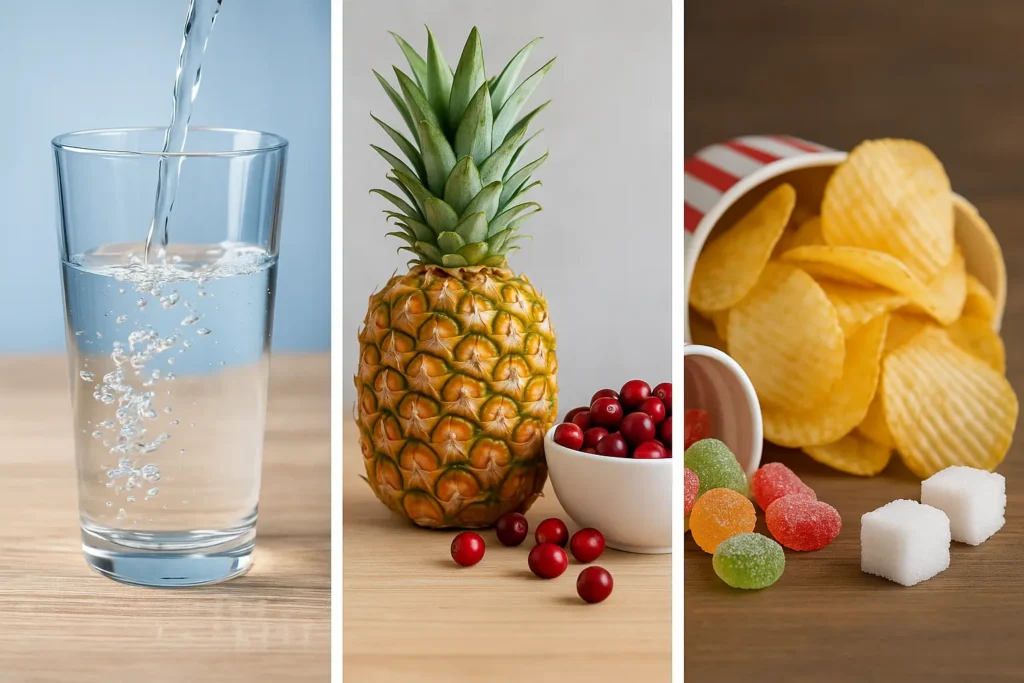Pineapple isn’t just a tropical treat—it has become a hot topic in health conversations, especially among women curious about how their diet affects their body, including vaginal health. From social media trends to wellness blogs, there’s growing interest in understanding: What does pineapple do for a woman vagina? Is there any truth behind the claims that it can make you smell better or taste sweeter down there?
This article dives deep into the science, myths, and facts behind pineapple’s role in vaginal wellness. We’ll also compare it to other popular natural remedies like cranberry juice and offer tips on how to make your vagina smell and taste better—safely and naturally.
Why Pineapple Is Linked to Vaginal Health
Pineapple is often linked to vaginal health due to its rich nutrient profile, including antioxidants, enzymes, and vitamins that support overall wellness. While it doesn’t directly alter vaginal function, it may contribute to better hygiene, taste, and odor when consumed as part of a balanced diet.
Is Pineapple Good for Vaginal Health?
Pineapple contains several nutrients that contribute to overall health—vitamin C, bromelain (a natural enzyme), antioxidants, and natural sugars. These components may indirectly support vaginal health, though not in the magical way some viral TikToks might suggest.
- Vitamin C boosts the immune system and helps fight infections.
- Bromelain is known for anti-inflammatory properties.
- Antioxidants help fight free radicals and promote skin and tissue health.
While no clinical study directly proves that pineapple improves vaginal health, its nutrient profile supports bodily functions, including those related to the vaginal microbiome and pH balance.
Nutrients in Pineapple That May Impact Vaginal Wellness

Pineapple contains key nutrients like vitamin C, bromelain, and natural sugars that may support vaginal wellness indirectly. These components help boost immunity, reduce inflammation, and promote hydration, all of which play a role in maintaining a healthy vaginal environment.
1. Vitamin C
This antioxidant-rich vitamin supports immune health and may help prevent infections like bacterial vaginosis and yeast overgrowth, both of which affect vaginal odor and pH.
2. Bromelain
This enzyme aids digestion and reduces inflammation. By helping the body better absorb nutrients, bromelain may support a healthier vaginal ecosystem.
3. Natural Sugars
The claim that pineapple can sweeten your vaginal taste stems from its sugary content. While this isn’t scientifically proven, some anecdotal evidence suggests a correlation between high-fruit diets and changes in bodily fluids.
Does Pineapple Make You Smell Better?
This is one of the most searched queries related to pineapple and female hygiene—and the answer is: kind of, but not in the way most think.
According to Cleveland Clinic, While pineapple won’t magically change your scent in a few hours, a balanced, fruit-rich diet may contribute to better-smelling body fluids over time, including vaginal discharge. This is mainly due to the hydration, antioxidants, and vitamins it provides—not some special scent-altering chemical.
So yes, pineapple might help you smell better—but only as part of an overall healthy lifestyle, not as a quick fix.
Does Pineapple Make Your Vagina Taste Good?
Let’s get real: your vaginal taste is affected by many things—hormones, hygiene, hydration, and yes, diet. Pineapple contains natural sugars and acids that can slightly influence how bodily fluids taste.
However, experts emphasize that:
- It’s a subtle change, not a dramatic transformation.
- Everyone’s body chemistry is different.
- Eating pineapple right before intimacy won’t yield instant results.
If you’re wondering, does pineapple make your vagina taste good?—the answer is: potentially, yes—but it’s not a miracle fruit.
Does Pineapple Juice Help with pH Balance?

As stated by WebMD, The vagina is naturally acidic, with a healthy pH between 3.8 and 4.5. This acidic environment protects against harmful bacteria and infections.
While pineapple is acidic too, it doesn’t directly regulate vaginal pH. However, its vitamin C content can support the immune system, which helps the body naturally maintain pH levels.
So, while pineapple juice isn’t a pH-balancing tonic, it can be a helpful part of a pH-supportive diet when consumed in moderation.
Does Pineapple Tighten the Vagina?
There is no scientific evidence that pineapple or pineapple juice can tighten the vagina. Vaginal tightness is more related to muscle tone and age-related changes, and best addressed through:
- Kegel exercises
- Pelvic floor therapy
- Medical consultation (for issues like prolapse)
So, does pineapple tighten the vagina? No—but a healthy diet may support tissue health, just not muscle elasticity.
How to Make Your Vagina Smell and Taste Better Naturally

Improving vaginal smell and taste naturally starts with healthy lifestyle choices and hygiene habits. Incorporating fruits like pineapple, staying hydrated, and avoiding harsh products can support a balanced vaginal environment and enhance overall freshness.
1. Hydration Is Key
As mentioned in Harvard Health Publishing, staying properly hydrated plays a vital role in flushing out toxins and maintaining healthy bodily fluids, including vaginal discharge. When you’re well-hydrated, your body functions more efficiently, and the composition of your sweat and secretions becomes more neutral, often leading to a fresher scent. Drinking enough water daily—typically 8 glasses or more—can help keep the vaginal area clean, balanced, and less prone to odor.
2. Eat More Fruits Like Pineapple and Cranberry
Fruits like pineapple and cranberry are not only rich in vitamins and antioxidants but are also associated with enhanced vaginal wellness. Pineapple, known for its sweet aroma and natural enzymes, may contribute to better-smelling and tasting body fluids when consumed regularly. Cranberry juice, on the other hand, has a long-standing reputation for supporting urinary tract health. According to Mayo Clinic, cranberries contain compounds that prevent bacteria from adhering to the urinary tract walls, which can help prevent infections that often cause unpleasant vaginal odors.
Including these fruits in your daily diet—especially in fresh or unsweetened juice form—can be a flavorful and natural way to support vaginal health.
3. Limit Processed Foods and Excessive Sugar
Diets high in refined carbohydrates, added sugars, and ultra-processed foods can disrupt the balance of healthy bacteria in your body, including the vaginal microbiome. This imbalance can lead to increased yeast growth, pH imbalances, and unpleasant odors. Research has shown that sugar feeds yeast, making conditions like candida overgrowth more likely. To maintain a healthy and fresh vaginal environment, focus on whole foods, lean proteins, and fiber-rich fruits and vegetables, and limit soda, candies, and fast food.
4. Practice Proper Hygiene
Maintaining vaginal cleanliness is essential, but it’s important to avoid over-cleansing or using harsh products. Douching, in particular, is discouraged by gynecologists because it can strip away good bacteria, alter vaginal pH, and actually increase the risk of infections and odor. Instead, gently wash the external area (vulva) with warm water or a pH-balanced, fragrance-free cleanser. Avoid scented wipes, sprays, and soaps in the vaginal area.
Remember: the vagina is self-cleaning. Over-intervention often does more harm than good.
5. Wear Breathable Underwear
Wearing cotton underwear is one of the simplest yet most effective ways to support vaginal freshness. Cotton is a natural, breathable fabric that absorbs moisture and allows air to circulate, helping reduce sweat and bacterial buildup in the vaginal area. Avoid tight-fitting synthetic fabrics, especially for long durations, as they can trap heat and moisture—ideal conditions for bacterial and fungal growth. Also, change underwear daily and consider switching to looser-fitting clothing during sleep to let the area breathe.
Pineapple vs. Cranberry Juice – Which Is Better for Vaginal Health?
Both fruits offer potential vaginal health benefits—but in different ways:
| Feature | Pineapple | Cranberry |
|---|---|---|
| Taste/Scent Benefit | May improve sweetness and body fluid scent | Less focused on taste but helps odor control |
| UTI Prevention | No known benefit | Strong support for preventing UTIs |
| pH Impact | Indirect | More direct, thanks to proanthocyanidins |
| Antioxidant Content | High | Very high |
If you’re aiming for overall vaginal wellness, a combo of both in moderation (without added sugar) is a safe, health-conscious choice.
Myths vs. Facts: What Does Pineapple Really Do for the Vagina?
Myth 1: Pineapple instantly makes your vagina taste like fruit.
Fact: While it may influence taste slightly, results vary and take time.
Myth 2: Pineapple can cure vaginal infections.
Fact: No. See a doctor if you’re experiencing recurring infections.
Myth 3: Drinking a lot of pineapple juice is enough for vaginal health.
Fact: Excessive pineapple juice (due to sugar) can be harmful. Balance is key.
Expert-Backed Tips to Improve Vaginal Taste and Smell
Here are evidence-supported ways to make your vagina taste and smell better:
1. Eat a High-Fiber, Antioxidant-Rich Diet
Include leafy greens, fruits, and whole grains to support digestion and reduce odor.
2. Avoid Smoking, Alcohol, and Strong-Smelling Foods
These can introduce toxins or alter body fluids, affecting vaginal scent and taste.
3. Maintain Good Sleep and Manage Stress
Poor sleep and stress can disrupt hormones, leading to unpleasant discharge or imbalance.
4. Exercise Regularly
Boosts circulation, balances hormones, and helps detox through sweat.
5. Consume Probiotics
Yogurt and fermented foods support healthy vaginal bacteria and pH balance.
FAQs
Final Thoughts– Is Pineapple Good for Vaginal Health?
So, what does pineapple do for a woman vagina? While pineapple may not be a magical solution for vaginal health, it can play a supportive role when included in a balanced, nutrient-rich diet. Its natural sugars, enzymes, and antioxidants may help subtly improve body odor and taste, contributing to overall wellness and confidence. However, it’s important to remember that vaginal health is influenced by many factors—diet, hygiene, hydration, and hormonal balance all play essential roles. So, while enjoying pineapple can be a delicious and beneficial addition, it should be part of a broader approach to intimate care. Always prioritize your well-being with informed choices and consult a healthcare provider for any concerns.
Disclaimer: The content on Wellness Derive is for informational purposes only and not a substitute for professional medical advice, diagnosis, or treatment. Always consult a healthcare provider for medical concerns.



